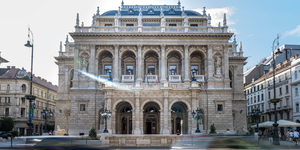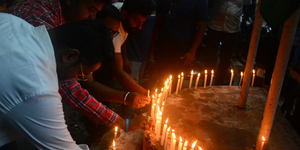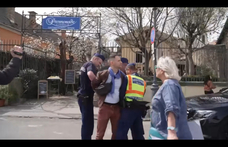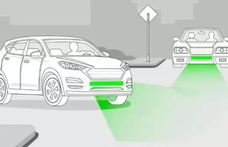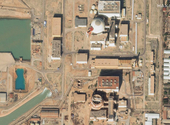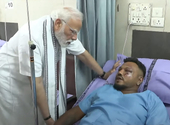Takacs's changing moods
Once, Albert Takacs was a defender of citizens' rights. Now, he is minister for justice and public order. His view on the journalists reporting on the demonstrations who were arrested by the police changed overnight.
Albert Takacs © Marton Szilvia |
On 17 November, police arrested Miklos Barcs, who was filming for our website, and Zoltan Bogad, a journalist for Index. Both were covering an unregistered demonstration being held at the Batthyany eternal frame. Barcs was doing his job when he was asked to show his papers. His camera and his telephone were confiscated before he was taken to Kobanya police headquarters in a police van. He was then made to wait until 11pm in the station's lobby. He was later shut up in a cell. Two hours later, he was interrogated. The reason given was that "he had resisted legitimate police activities." They announced they would start proceedings against him for a misdemeanour and that he could expect a Ft40,000 fine. He was released in the small hours. Police only told his family where he was half an hour before releasing him. Bogad was taken in handcuffs to the police headquarters for the seventh district, even though he could prove that he was a journalist. He was released at around midnight. He is also threatened with proceedings for a misdemeanour.
On 19 November, the minister said the police actions were "legally correct" and added that it was unacceptable for journalists not to leave the scene of an illegal demonstration after being asked to do so by the police. Nepszabadsag asked Takacs why, if police had acted appropriately, an internal inquiry was being held into the affair. The minister explained that "the journalists and the police did not give identical acccounts of events, so an inquiry is being held." The next day, he told RTL Klub: "After being asked to leave the scene of an illegal demonstration, a journalist cannot argue that he is carrying out his duty to inform and that he can legitimately remain there."
He made the point yet again in an interview with Magyar Nemzet. Asked whether a journalist could be considered a participant in a demonstration, he replied: "Everyone has to accept the legal consequences, whether that person is doing his job or demonstrating." When it was pointed out that he had thought differently as an ombudsman for citizens' rights, Takacs drew a surprising parallel. "You have the freedom to be an entrepreneur, but if somebody sells pretzels at an unregistered demonstration and the police start to disperse that demonstration, then the pretzel man also has to go. Just like the journalist." The next day, he reacted sceptically to a Strasbourg human rights court ruling recommending that spontaneous demonstrations be permitted, saying the ruling was just a guidelines and that member states could work out the details themselves.
Something changed. Did the minister, like Martin Luther King, have a dream? Did he crack? Was it that he noticed that national and international demonstrations, as well as prominent members of the coalition parties, were also condemning the police's actions? In any case, on 20 November, Takacs was sounding a different tune. He admitted to TV2 that, "the law on assembly has been revealed to contain lots of loose threads and problematic elements. Even today's confused regulations don't give the police the right to single out journalists." And, as if he had said nothing the previous day, he said: "in order for things like this not to happen, the law on assembly must be changed to incorporate specific regulations relating to working journalists."
Later, at a joint session of the parliamentary committees on judicial and human rights affairs, the minister said outright that if a journalist was not in the crowd, but taking photographs, reporting or filming, standing separately from the demonstrators, then the journalist could naturally remain. He added that journalists could not be required to wear yellow visibility jackets.
And, wiping away all traces of his remarks the previous Saturday, his ministry called a roundtable discussion on Friday, inviting representatives from the police, the media and journalists' associations. The aim was "to find a consensus that will allow journalists to do their job reporting on police actions," according to a ministry statement. (hvg.hu was not invited to this meeting).
We are glad that Takacs has changed his mind. We can also accept that a roundtable might be required to debate the press freedom that the constitution already explicitly protects. It follows from the constitution that the police cannot stop journalists from reporting on demonstrations. But we do worry that the minister seems to change his mind as often as the prevailing winds in an era of global warming.
R. H.

